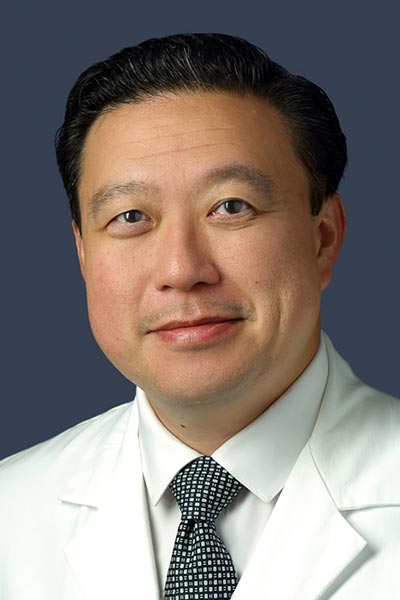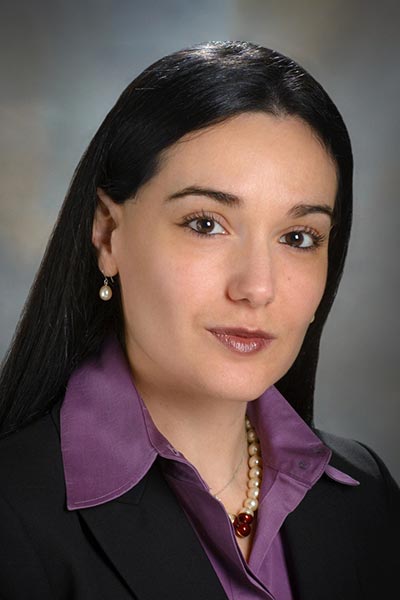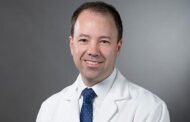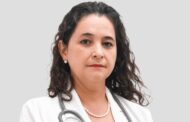
Top oncologists and researchers will soon gather in Austin, Texas, for a new IASLC-endorsed CME meeting exploring the latest in the diagnosis and management of lung cancer.
The Texas Lung Cancer Conference (#TexasLung23) begins the evening of March 30 and runs through April 1, at the historic Austin City Limits Live at The Moody Theater.
Two full days of educational programming were organized under the direction of Conference Chairs Stephen Liu, MD, and Tina Cascone, MD, PhD. Dr. Liu is an associate professor of medicine, director of thoracic oncology, and director of developmental therapeutics at the Lombardi Comprehensive Cancer Center of Georgetown University in Washington, DC. Dr. Cascone is an assistant professor of medicine in the Department of Thoracic/Head & Neck Medical Oncology in the Division of Cancer Medicine at the University of Texas MD Anderson Cancer Center in Houston.

ILCN recently spoke to Drs. Liu and Cascone to learn more about the event.
ILCN: This is the first ever Texas Lung Cancer Conference. Tell us a little bit about this conference and what it offers attendees.
Dr. Liu: As you know, the treatment of lung cancer has become increasingly complex. We have a better collective understanding of the different subtypes of lung cancer and newer medicines to help us further personalize care. But with more options, it is hard to keep up; it becomes more and more challenging to know which treatment to choose for an individual patient. The Texas Lung Cancer Conference is designed to deliver a meaningful update of lung cancer management over just two days—comprehensive but efficient, tailored to a busy clinician.
Dr. Cascone: We took a lot of care in crafting the agenda with the goal to make it informative for all levels of training and experience. The Texas Lung Cancer Conference has sessions devoted to various molecular subtypes of lung cancer, discussing optimal initial care and strategies to overcome and prevent resistance. There are many talks on immunotherapy and how to choose among the various approved immunotherapy regimens. We also have important lectures by surgeons and radiation oncologists to provide important perspectives on early stage lung cancer and highlight the value of the multidisciplinary approach to this disease.
ILCN: The faculty for this conference includes many notable names within the lung cancer community. Who are you looking forward to hearing speak and why?
Dr. Liu: We are lucky to have a world class faculty providing expertise and perspective, all of whom will give insightful and engaging talks. I think some talks of particular interest will be those addressing acquired resistance to ALK and ROS1 inhibitors by Dr. Jessica Lin and to EGFR inhibitors by Dr. Jonathan Riess. We will also have useful overviews of BRAF (Dr. Ibiayi Dagogo-Jack), METex14 (Dr. Paul Paik), and antibody drug conjugates (Dr. Joshua Reuss).
Dr. Cascone: I also think that the talks from our surgery colleagues will be of great interest: Dr. Jessica Donington will discuss adjuvant immunotherapy and Dr. Brendon Stiles will discuss whether we can convert an unresectable lung cancer to a resectable one. We also have Dr. R. Steven Paulson, the president of Texas Oncology, talking about the intersection of community and academic oncology, and Dr. Debra Patt discussing health care policy for today’s oncologist.
Dr. Liu: I think it’s a unique opportunity to hear about landmark trials from the people involved in the studies – like Dr. David Spigel discussing PACIFIC, Dr. Ferdinandos Skoulidis providing perspective on KRAS, and Drs. Melissa Johnson and Hoss Borghaei reviewing immunotherapy combinations.
ILCN: The final session on the agenda is a debate on the potential role for CTLA-4 in metastatic non-small cell lung cancer argued by Balazs Halmos, MD, and Ben Levy, MD. What points do you expect Drs. Halmos and Levy to make in arguing their cases?
Dr. Cascone: I think the role of CTLA-4 inhibition in priming T cells for an effective immune-mediated response may be important for specific subsets of NSCLC when combined with anti-PD-1 therapy or when given with a combination of chemotherapy and PD-(L)1 axis inhibition. The distinct effects of these immune checkpoint inhibitors on the immune system and the antitumor response may lead to improved outcomes in distinct molecular NSCLC types or in when particular sites of metastatic disease are present.
Dr. Liu: OK, Tina – let’s let Ben and Balazs settle this on stage!
For more information about the event, including a detailed schedule and registration information, visit theTLCconference.com.




